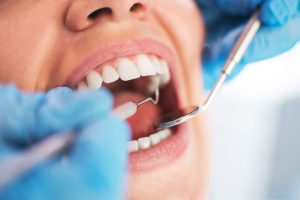
While new research suggests you should. A study is drawing links between oral hygiene and heart health.
The recent work found that oral bacterial populations may play a role in high blood pressure risk. After following 1,200 women for a decade, researchers identified fifteen bacterial strains that were linked to high blood pressure. A few types may help protect the heart.
The findings, however, do not prove that microbes in the mouth directly influence blood pressure or that brushing and flossing may be an effective tool to manage blood pressure. They are, however, the best tools for oral hygiene!
Other studies have found that severe gum disease, which is a bacterial infection, is associated with increased risks of high blood pressure and heart disease. It might be because “bad” bacteria enter the circulatory system and contributes to inflammation.
There is also some evidence suggesting that people with high blood pressure have a different oral microbiome than people with normal blood pressure, so it’s up for debate which causes or how the two may be related. Perhaps it is dietary.
Researchers used dental exams and plaque samples to analyze oral bacterial population in 1,215 participants in the large-scale Women’s Health Initiative study. Over the next decade, 735 were diagnosed with high blood pressure.
Fifteen bacteria strains were associated with the risk, and in many cases, the risk was associated with the number of potentially harmful bacteria residing in the mouth.
They also found that five types of bacteria seemed to be linked to a lower risk for high blood pressure. It is possible that one of them may have been aided blood pressure by acting as a source of nitric oxide (NO).
NO helps relax blood vessels to help blood flow more easily.
It’s unclear if oral hygiene and blood pressure are truly linked, but it may add some extra incentive to brush and floss twice per day. The best defenses against high blood pressure are exercise, a healthful, nutritious diet, and maintaining a “normal” weight.